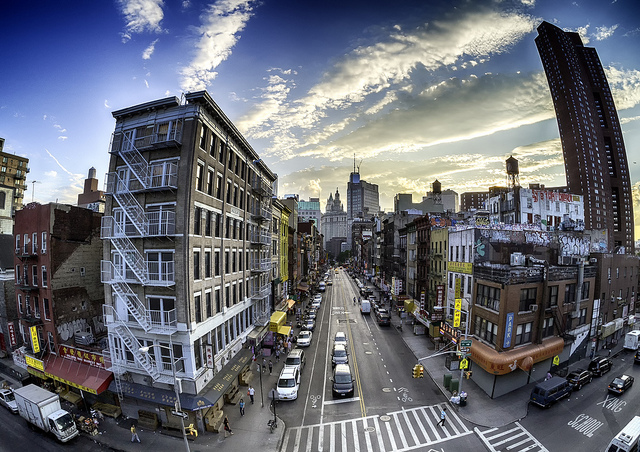Google Creates Company to Improve Cities

Google has created Sidewalk Labs to solve urban challenges with technology. Photo by Roman Kruglov/Flickr
If Google were to solve urban problems as it solves digital ones, would the world be safer?
Get ready because this is precisely the ambition of the Internet giant, which has just announced a new company that will work at the intersection of the digital and the real world. Sidewalk Labs has been created with the mission to improve life in cities through technology.
New technologies have completely changed the world of business, access to information, education, and lifestyles – there are digital resources and applications for just about everything. However, major urban challenges such as mobility, efficient transport, cost of living, use of natural resources and government efficiency have so far proven more difficult to resolve.
Sidewalk Labs will develop products, platforms and partnerships to accelerate progress in these areas.
Dan Doctoroff, former CEO of Bloomberg LP and former Deputy Mayor for economic development and rebuilding of New York City, is the CEO of the new company.
He says: "We are at the beginning of a historic transformation in cities. At a time with rising concerns about urban equity, cost, health and environment, the transformative power of technology will make cities more efficient, responsive, flexible and resilient. We expect Sidewalk Labs to play a big role in the development of technological products, platforms and advanced infrastructure that can be implemented at scale in cities around the world".
Google CEO Larry Page believes that better urban technology can significantly change the lives of billions of people around the world. "With Sidewalk Labs, we want to expand massively existing efforts in areas such as housing, energy, transportation and government in order to solve real problems that urban residents face every day," he said.
It is exciting to know that Google is on the front line to help combat urban problems with its core skill: technology. It's a chance to ensure the urban population, 54% of the world today, gets a more equitable, affordable, and happy future.
But do you agree that this is necessarily good news? Will it result in cities being more sustainable?
The official website of the company reveals the next steps.
Related posts:
- Webinar Round-up: What Makes a Smart City?
- Smart Cities and Technological Innovation
- Urban Innovation Centre and Smart Cities
- Smart Cities and Urbanism and Big Data
- Smart City and Crowdsourcing and Democracy in Barcelona
- Smart City Protocols and the Internet of Things
- Do Self-Driving Cars Really Make Smart Cities Better Places?
- Tech Companies Must Not Set the Agenda if Smart Cities Are To Let People Thrive
